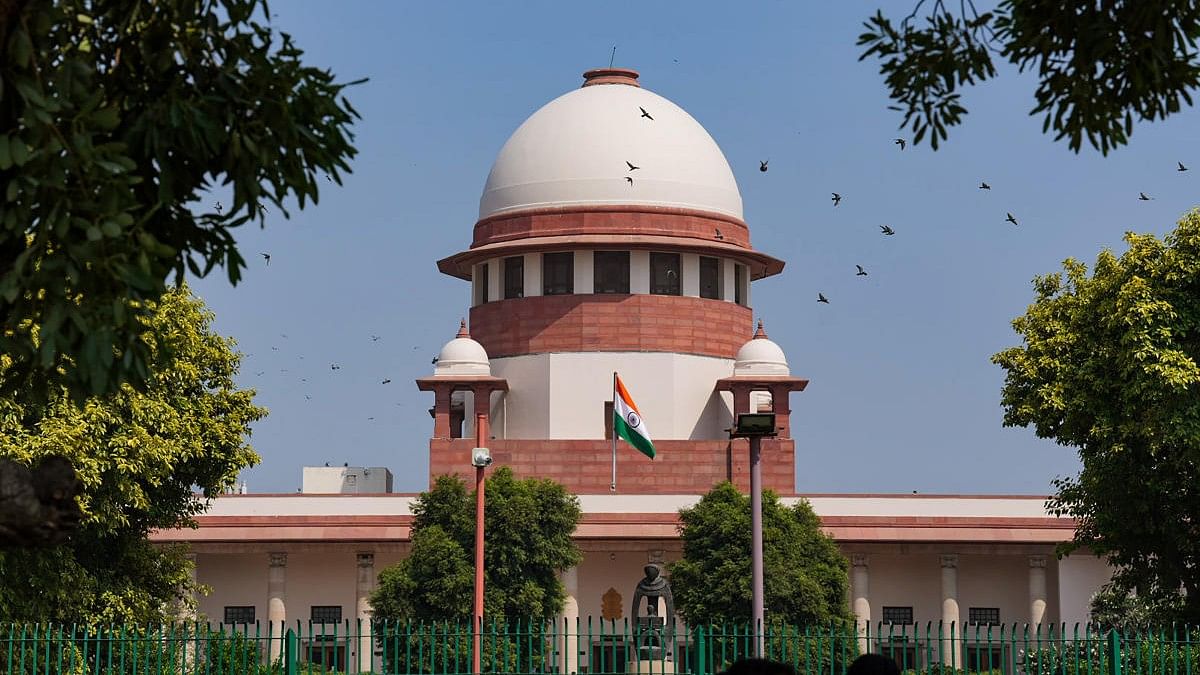
Supreme Court.
Credit: PTI Photo
The Supreme Court on Thursday questioned the Gujarat government over selective application of its remission policy for 11 life term convicts in the case related to gang rape and murder of Bilkis Bano's family during the 2002 Gujarat riots.
The top court said the state government was on "thin ice" on the issue.
A bench of B V Nagarathna and Ujjal Bhuyan asked some tough questions to the state government as Additional Solicitor General S V Raju tried to justify the remission as per law and rules.
The bench said the opportunity to reform must be given to all and not just a few.
It also asked Raju that since in this case, it was the second highest punishment after death penalty, which is life imprisonment (awarded to the accused), so how the remission was given to them in such a situation.
"Why is the policy of remission being applied selectively? The opportunity to reintegrate and reform should be given to every convict, not a few. Question is, not en masse, but where eligible, are all life sentence convicts after 14 years being given the benefit of remission," the bench asked Raju.
The Gujarat government had granted remission to the 11 convicts based on May 13, 2022 judgement of the top court.
Raju said that the state government was bound by the effective order of the Supreme Court which had said the State's remission policy would apply in the case and it should consider such applications for remission based on the Gujarat government's policy of 1992.
Raju said that all compliances with the 1992 remission policy of Gujarat were done legally and with due procedure.
The senior law officer also narrated how Section 432 (Power to suspend or remit sentences) of the Criminal Procedure Code was applied on these convicts.
He said absolute deterrence principles will not apply in case of reformative theory. "Person should be given a chance to reform himself even after a heinous crime," he said.
The court asked all the parties to conclude their respective submissions and arguments on August 24, the next date of hearing in the case.
During the hearing, the bench also asked the state government what was the need to have the opinion of the district judge of Godhra which did not try the accused.
The bench also asked Raju, how far remission policy is being implemented in cases where persons have completed 14 years of their sentence, and whether the same policy is implemented in all such cases.
The court also sought details about the composition of the jail advisory committee (there was criticism that there were two BJP MLAs on the committee). The bench further asked Raju, didn’t the CBI also give a negative opinion when their view was sought on remission of convicts?
Raju contended that law is not that everyone should be punished perpetually and chance should be given for reformation. The bench asked how far this rule, which gives a chance to criminals to reform by releasing them after 14 years being applied to other prisoner. Opportunity to reform and reintegrate should be given to all, why are our prisons overflowing?, the bench asked. The bench told the counsel to provide data regarding implementation of remission policy.
A batch of petitions challenged the remission granted to convicts in Bilkis Bano case in August, 2022. Besides the petition filed by Bano, Trinamool Congress (TMC) MP Mahua Moitra, former MP and CPI(M) leader Subhashini Ali, independent journalist Revati Laul and former vice-chancellor of Lucknow University Roop Rekha Verma also filed plea against the decision.
